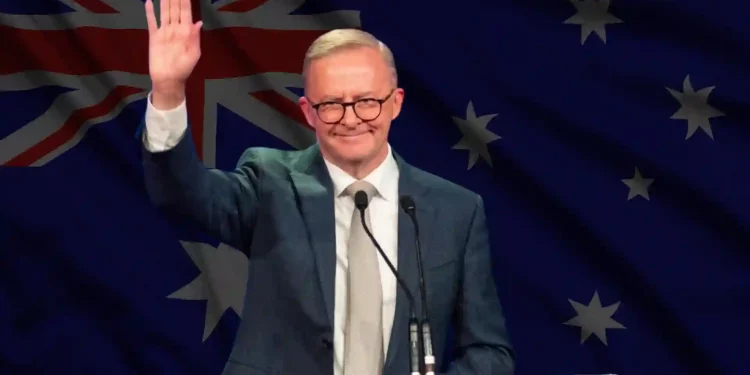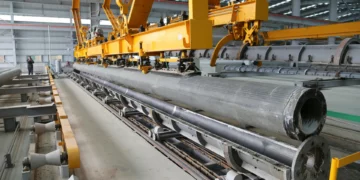Leader of the Labour Party in Australia, Anthony Albanese, was sworn in today as the country’s 31st Prime Minister. Albanese vowed to tackle inequality and climate change, and will seek to bring the country together after a protracted election campaign.
The Labour Party returned to power, having been in the opposition for nine years, after unprecedented support from independents, mainly women. The win, in Saturday’s general election, ended almost a decade in power by the conservative coalition.
In hist first briefing to the media after assuming the office of Prime Minister, Albanese said that he looked forward to leading a government that brought people together and Australians could be proud of.
While votes were still being counted, and the structure of the government remained to be finalised, Albanese was sown in as Prime Minister by Governor-General David Hurley. The ceremony was held in Canberra, the national capital, in order to facilitate Albanese attending an important meeting of the Quad group of countries on Tuesday.
India, the United States, Japan and Australia are members of the Quad, an informal group that the US has been promoting to work as a potential bulwark against China’s increasing political, commercial and military activity in the Indo-Pacific.
Australia to attend Quad meet on Tuesday
Albanese was quoted as saying that Australia’s relations with China would remain to be difficult, ahead of the meeting with the US president and the Prime Ministers of India and Japan.
Deputy leader of the Labour Party in Australia, Richard Marlse, along with three key ministers were also sworn in. Penny Wong as Foreign Affairs minister, Jim Chalmers as Treasurer, and Katy Gallagher as Finance minister were appointed on Monday. Wong is scheduled to accompany Albanese on his meeting with the Quad member states.
The campaign by the Labour Party focused on Alabnese’s working-class credentials, as a boy raised in public housing by a single mother on disability allowance. He as also protrayed as a pragmatic unifier.
According to TV channels, Labour still remained four seats short of a majority of 76 seats in the lower house.
Analysts predicted that the Independents or Green party could win a minimum of 15 seats.
Independents campaigning in affluent, Liberal-held seats on a platform of climate, integrity and equality, could exert considerable influence.
Albanese stated that he hoped that the Labour Party would win enough seats to govern Australia on their own. He added that he had already struck deals with some independents in which they would refrain from supporting a no-confidence motion against his government. The full ministry will be sworn on on June 1.
With a massive 2.7 million postal votes to be counted, official results may be several days away.

















